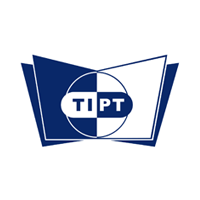
Developing new drugs requires pharmaceutical companies to invest billions of dollars and years of research with no guarantee that their investment will lead to a drug ever being approved for sale. As a result, many companies are looking to information technology (IT) to help improve the efficiency of new drug research and development.
If you’re considering a career in the pharmaceutical industry, IT could have a major impact on your future role. Here are a few ways you could benefit from the influence of IT when working in pharmaceutical research and development (R&D).
Information Technology Helps Pharmaceutical R&D Comply with GLP
Good laboratory practice (GLP) is a system of controls used to ensure that laboratory research is kept to consistent, reliable and reproducible standards. During your pharmaceutical research and development program, you’ll learn all about GLP compliance. However, GLP regulations are complicated, and information technology can help make compliance easier for researchers, particularly through what is called a Laboratory Information Management System (LIMS).
A LIMS is a type of software that labs use to do such things as input, exchange and track data, improve workflow and, perhaps most importantly, facilitate compliance with GLP standards. For example, GLP requires labs to maintain records of the raw data they produce in case such data needs to be audited. If you choose to work in a laboratory, you may find that documenting all this raw data by paper can be quite time-consuming and inefficient. Because a LIMS maintains records of raw data automatically, you’ll instead be able to spend more time conducting research and less time documenting data and processing paperwork.

Information Technology Helps Establish Communication Between Different Teams
One challenge that many pharmaceutical companies face today is overcoming data silos. A data silo is when a group, such as a department within a company, fails to share data with others. Data silos can occur for a number of reasons. One group may be unaware that their data could be useful to others or the way data is stored at a company may make it difficult to be shared between groups. Data silos hold back research and development. For example, one group may perform a clinical study but not share the results of that study with others. Another department may perform the same study, thus leading to redundant data and an inefficient use of time and money.
In many cases, data isn’t shared because the software that one department uses doesn’t allow that data to be accessed by other groups. IT is helping overcome this problem with what is called Enterprise Resource Planning (ERP). ERP is a system that stores all the data that an organization produces, thus giving the entire organization access to the same data.
Once you begin your career in pharmaceutical research and development, the use of an ERP can help you avoid conducting redundant studies as you will be able to more effectively build on others’ work.
Software can help pharmaceutical R&D departments to better share and access data
Artificial Intelligence Can Help Identify Opportunities for Pharmaceutical R&D
One challenge with data is that when there is a lot of it, it can be difficult for pharmaceutical R&D professionals to identify what data is and isn’t useful. Artificial intelligence (AI) can help with overcoming this challenge. AI can uncover patterns in large amounts of data that may be of use to one team within an organization. While a human researcher could potentially spend hours, or even days, trying to find data that is useful to them, AI can spot such data much more quickly. AI can also analyze pre-existing data to help pharmaceutical R&D departments better predict how a new drug may perform in pre-clinical and clinical tests. If you work in pharmaceutical R&D, you can use this analysis to better hone the design of experiments so that they are more likely to provide you with new and useful information.
Are you interested in pursuing a pharmaceutical career?
Contact Toronto Institute of Technology to learn more about our programs!
